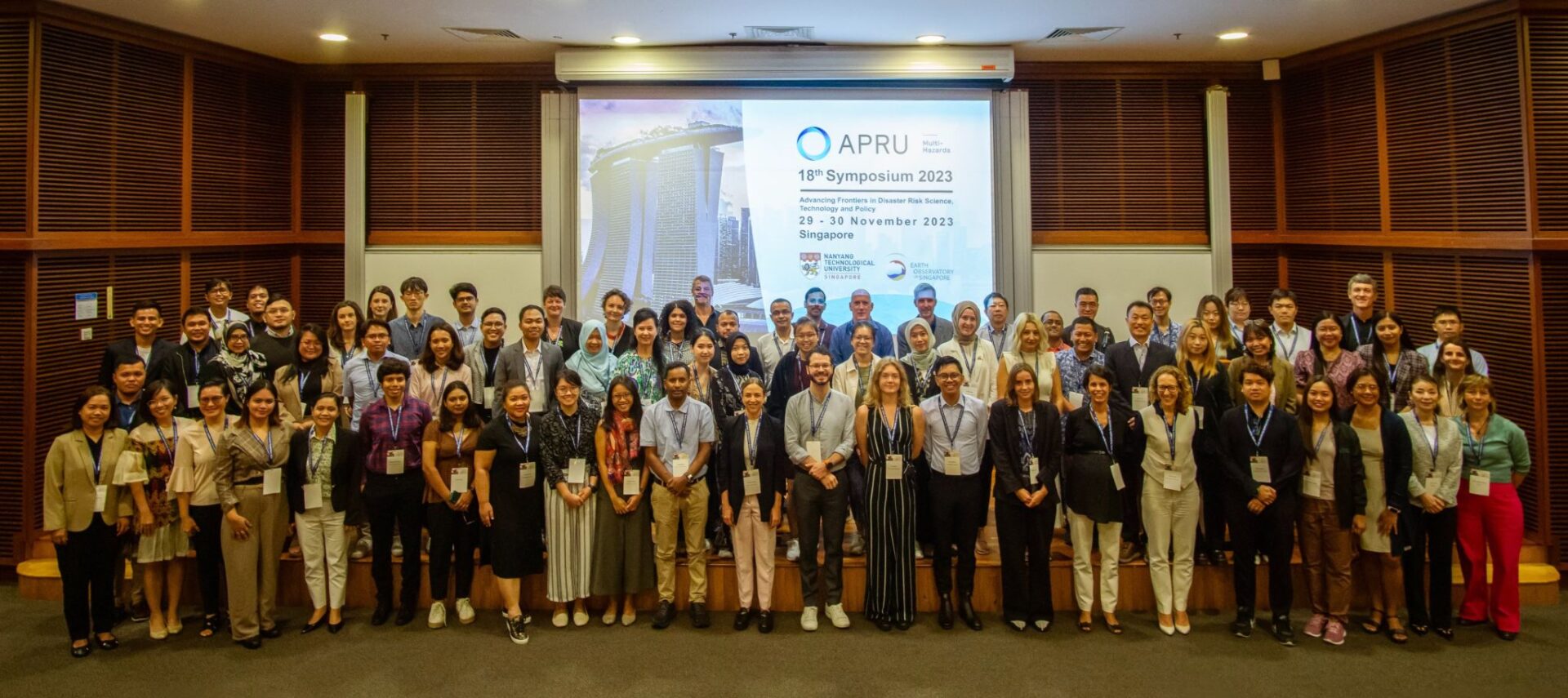Photos Credit: Earth Observatory of Singapore, Nanyang Technological University
The 18th APRU Multi-Hazards Symposium 2023 was hosted by Nanyang Technological University’s Earth Observatory of Singapore (EOS) from November 29 to 30 in Singapore, with the theme “Advancing Frontiers in Disaster Risk Science, Technology and Policy.”
The conference, held at the off-campus complex NTU@one-north in a major business area of the city state, proved to be a valuable platform for more than 120 participants from 15 economies to circle in on a wide range of issues related to climate change, earthquake risks, urban planning, public health and environmental hazards.
The APRU Multi-Hazards Program strives to facilitate the Pacific Rim’s journey towards safe and resilient societies as the vast area is one of the most disaster-prone regions in the world, with increasingly frequent natural hazards threatening millions of people, worsen by the climate change.
Many of the presenters and discussants were early career researchers from diverse academic backgrounds reflecting the wide spectrum of topics set out by the event organizer, which made the exchange highly interdisciplinary.
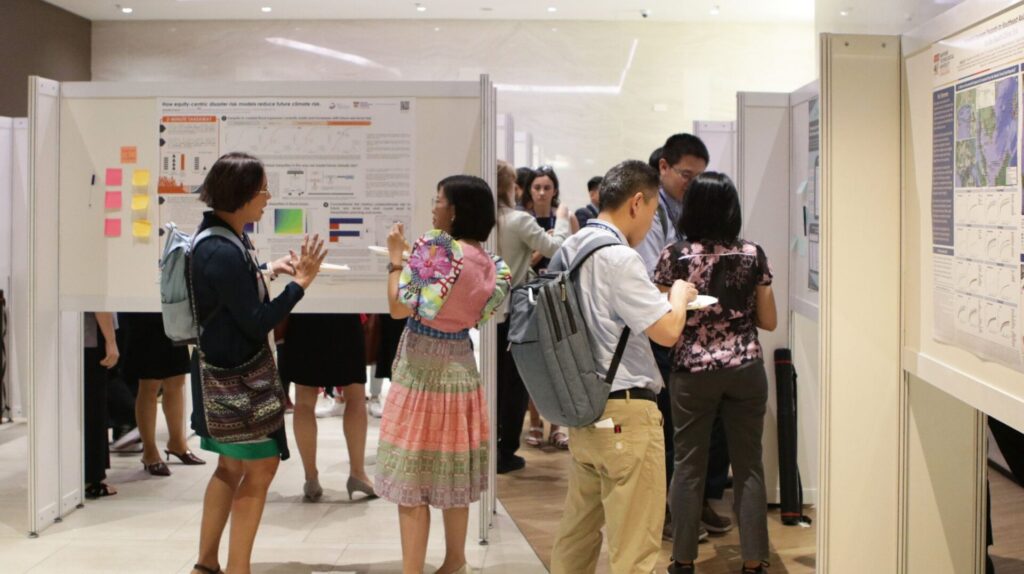
“The symposium is an ideal platform to bring experts together from the highly diverse region, offering opportunities to exchange best practices and form actual collaborations,” said Professor Benjamin Horton, Director of EOS.
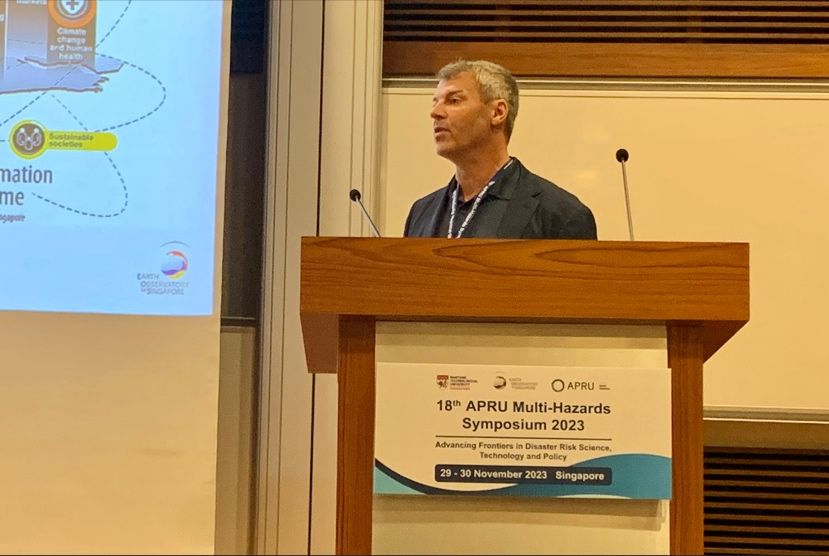
“I hope this event provides a sense of hope for a world in crisis – global warming, diminishing biodiversity and fragile food security amidst growing population – and provide a sense of resilience that we can have a safe and sustainable future,” he added.
The first keynote speech, delivered by Pamela Cajilig, Professorial Lecturer at the the University of the Philippines’ College of Architecture and co-founder of the Manila-based ethnographic design research and consultancy firm Curiosity, flagged the vulnerability of indigenous peoples across the Pacific. She stressed that despite most policy frameworks recognizing the important role of grassroots and indigenous communities in responding to ecological crises, many of these ways of knowing have over the centuries been ignored, silenced, or neglected as supposedly irrational barriers to progress.
“Knowledge expressed via stories, oral histories, and art forms — rather than through figures, tables, and charts — is produced out of direct and lived experience of crises and within ways of life that are characterized by attunement to the environment,” Cajilig said.
“With a rapidly closing window to collectively make meaningful changes to ensure our survival, researchers need to urgently listen and learn from grassroots and indigenous communities.”
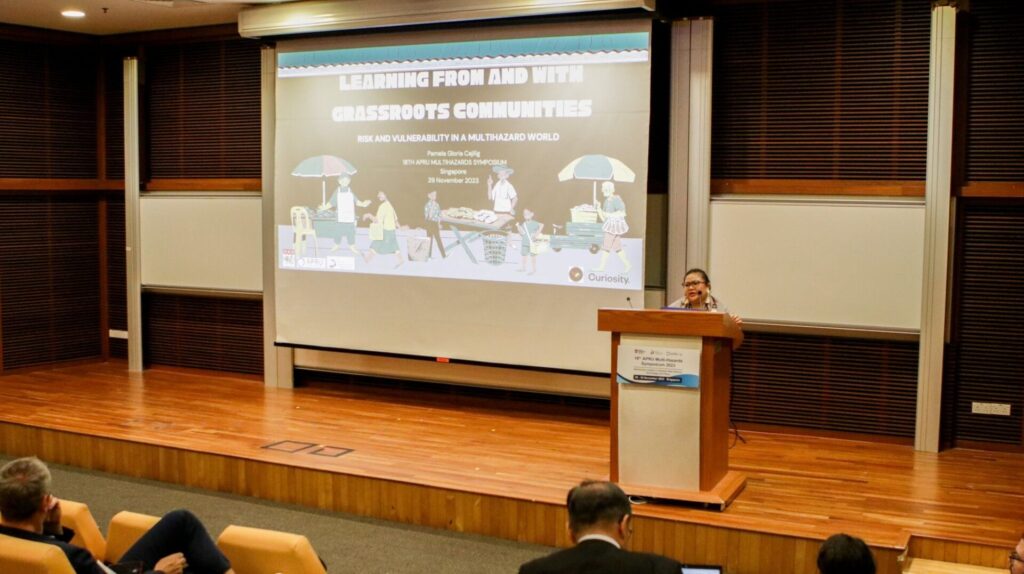
The two-day conference was complemented by several exciting field trips organized by EOS afterwards on the third day.
In Sungei Buloh Wetland Reserve, participants were introduced to the incredible native biodiversity that live in Singapore’s mangrove habitats. Another trip brought the group to EOS’s interactive “Adapting Waterfronts: Postcards from the future, Singapore 2122” installation that invites the public to explore the past, present, and potential future transformations of the country’s shoreline. At Marina Barrage, a dam built across the 350-metre-wide Marina Channel to keep out seawater, EOS shared inspiring knowledge about urbanised water catchment.
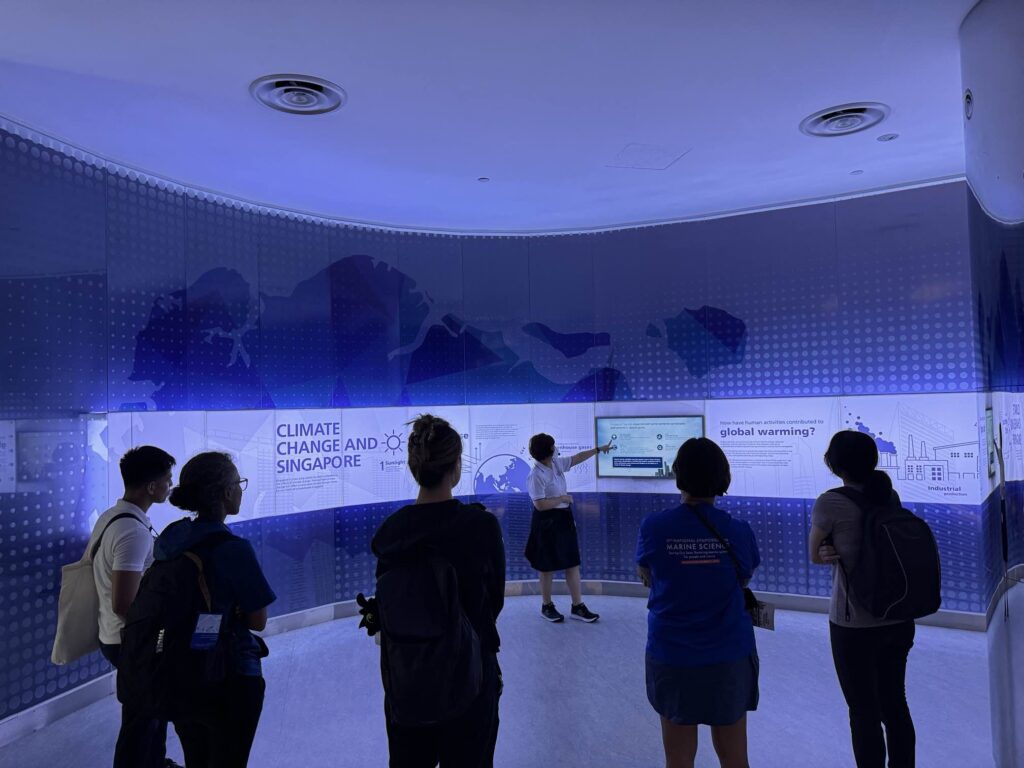
Download the Program Book for more details.

